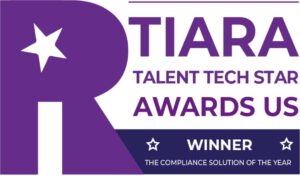Approximately 59 million people are working in the freelance economy right now. That amounts to roughly 36 percent of all workers in the US.
The Department of Labor (DOL) published a proposed regulation on October 11, 2022, that would reintroduce the “economic reality” standard for deciding whether a worker is an independent contractor or an employee under the Fair Labor Standards Act (FLSA).
What Is the Proposed Rule?
The Wage and Hour Division of the US Department of Labor is set to be revised in order to align its analysis of employee or independent contractor classification more closely with judicial precedent and the text and purpose of the FLSA.
The Department believes that its proposed regulation would lower the risk of workers being misclassified as independent contractors and provide additional security for companies that interact (or desire to engage) with self-employed people.
Specifically, the proposed rule looks to:
- Align the Department’s strategy with the reading of the FLSA by the courts and the fiscal truth test.
- Restore the multifactor, totality-of-the-circumstances approach used by the FLSA to decide whether a laborer is an employee or an independent contractor.
- Ensure all factors are considered without giving any element or group of factors a fixed weight.
- Return to the traditional understanding of economic reality elements. These variables include money, control, and profit or loss potential. The integral factor is also included, which examines whether the job is essential to the employer’s company.
- Assist with the correct FLSA categorization of workers and independent freelancers.
- Reverse the Independent Contractor Regulation of 2021.
What is the “Economic Reality” Test?
The “economic reality” test is a legal standard used by the United States Department of Labor (DOL) to determine whether a worker is considered an “employee” or an “independent contractor” under the Fair Labor Standards Act (FLSA). The test focuses on the economic relationship between the worker and the employer. It seeks to determine whether the worker is economically dependent on the employer or is in business for themselves.
The test involves evaluating multiple factors, including:
- The extent to which the work performed is an integral part of the employer’s business: If the work performed by the worker is essential to the employer’s business, it suggests that the worker is an employee rather than an independent contractor.
- The worker’s opportunity for profit or loss depends on their managerial skill: If the worker can make a profit or suffer a loss based on their own managerial skills, they are more likely to be considered independent contractors.
- The extent of the relative investments of the employer and the worker: If the worker has made significant investments in equipment or other resources to perform the work, this may indicate that they are an independent contractor.
- The degree of control exercised by the employer over the worker: If the employer controls the worker’s work schedule and methods of performing the work and provides training or tools to complete the work, it suggests that the worker is an employee.
- The degree of skill required to perform the work: If the worker possesses specialized skills or knowledge that are not readily available in the labor market, this may indicate that they are an independent contractor.
It is important to note that no one factor is determinative in the economic reality test. Whether a worker is an employee or an independent contractor depends on the circumstances, and the DOL considers all relevant factors when making this determination.
Whom Will It Affect?
If approved, the proposed regulation would make it more difficult for certain workers to qualify as independent contractors under the FLSA and would significantly affect contract workers and other service workers covered by that law. However, the suggested regulation only pertains to the FLSA, and the most common battlegrounds for worker classification are tax audits and unemployment insurance conflicts at the state level. As a result, while this regulation is less advantageous for companies that use independent contractors, its impact will be less dramatic.
How Will Independent Contractors Be Affected by Changes to the FLSA?
If there are changes to the Fair Labor Standards Act (FLSA) that affect the classification of independent contractors, it could potentially impact how independent contractors are paid, as well as their eligibility for certain benefits and protections that are available to employees.
For example, if the economic reality test is changed, it could make it more difficult for workers to be classified as independent contractors and more likely to be classified as employees. This would mean that they would be entitled to minimum wage, overtime protections, and other benefits and protections available to employees, such as workers’ compensation, unemployment insurance, health insurance, and retirement plans.
Important Information
Individuals and organizations can comment on proposed changes to the Department of Labor (DOL) by submitting comments during the public comment period. During this period, which typically lasts for a specified time after the proposed rule is published, the DOL accepts comments from the public on the proposed rule.
Unfortunately, the comment period closed on December 13, 2022. The Department is currently reviewing all timely comments.
Any potential changes to the Fair Labor Standards Act (FLSA) regarding classifying workers as employees or independent contractors could have significant implications for workers and companies.
Any changes to the FLSA classification of workers must be carefully considered to ensure a fair and equitable system for all parties involved. For companies, changes to worker classification could impact how they classify and pay their workers, as well as their potential liability for FLSA violations. It is essential for individuals and organizations to stay informed about any proposed changes to the FLSA and to participate in the public comment period to provide feedback on the proposed rule.
Stay Current with Employment & Labor Laws
Employment & labor laws are ever-changing to keep up with our evolving economy. This can make it difficult for your HR team to stay on top of employer compliance. VirgilHR has the perfect software solution! Come join us in our mission to transform the approach of HR towards compliance. Give us a call today or sign up for a free demo of our compliance software solution!






